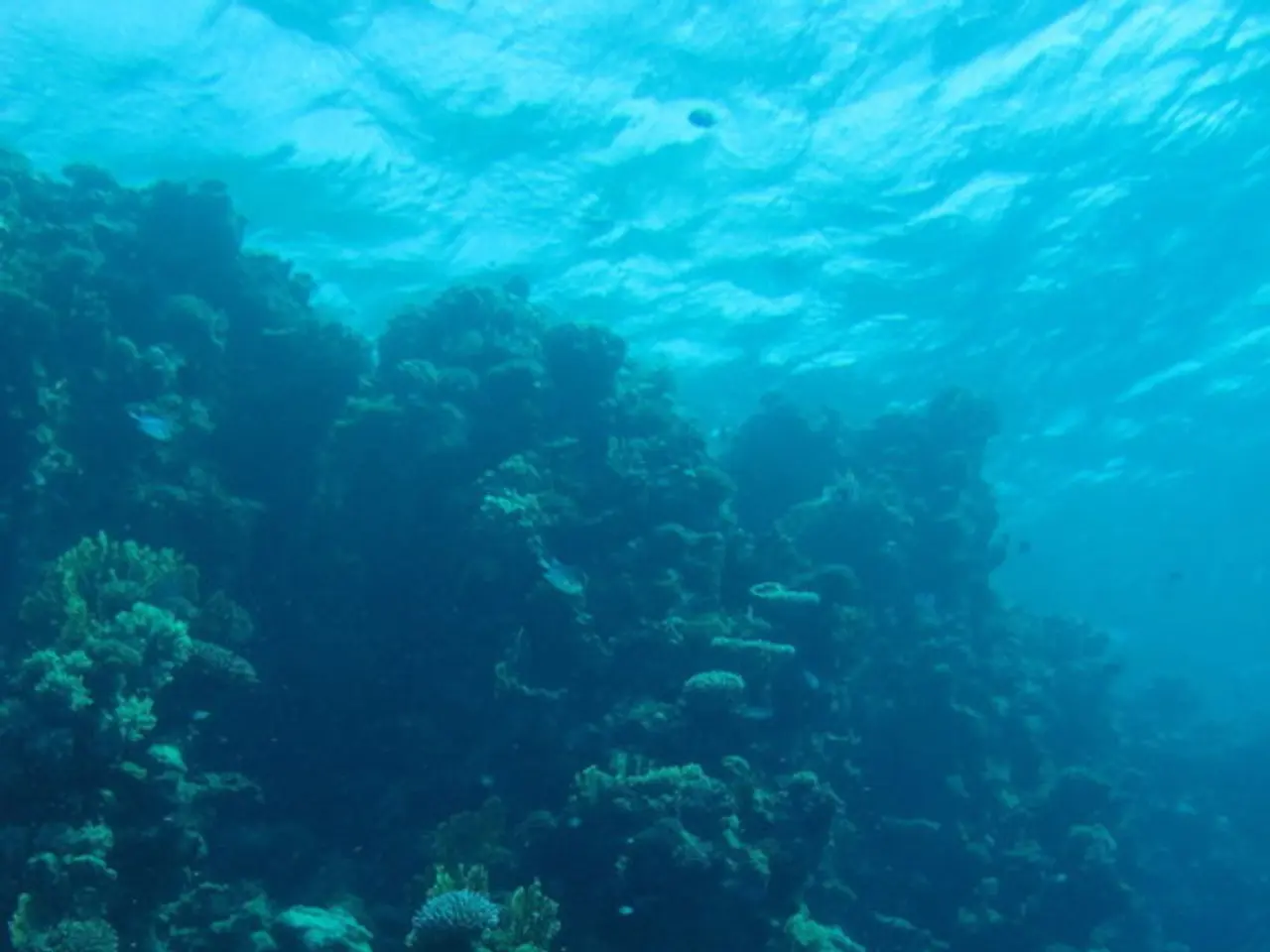China boosts marine research efforts in Nice
In a significant move towards global sustainability, China has announced plans to provide 5,000 placements for individuals from developing countries to be trained in sustainable marine issues. This initiative is part of China's growing role in the United Nations Ocean Conference, where the country has been advocating for sustainable ocean development in line with global efforts like the UN Sustainable Development Goals (SDGs), particularly SDG 14.
At the 2025 UN Ocean Conference co-hosted by France and Costa Rica, China participated as part of the global community, aiming at sustainable ocean management. This participation marked a continuation of China's broader environmental initiatives, such as its 2021 Global Development Initiative, which explicitly supports the UN SDGs and reflects a shift towards greener investments and sustainability goals.
China's plans for sustainable ocean development are linked to these commitments, balancing development with conservation. This includes reducing carbon-intensive projects as part of the Belt and Road Initiative (BRI), where there has been a recent pivot from early carbon-heavy infrastructure projects like coal power plants to greener investments, albeit with some remaining environmental concerns. This evolving approach indicates China's intent to align more closely with international sustainability frameworks in ocean management.
However, tensions persist in maritime territorial disputes, especially in the South China Sea, where China asserts sovereignty through the nine-dash line claim, which remains contested by neighbouring countries like Vietnam, Malaysia, and the Philippines. These disputes pose challenges to regional cooperation on ocean governance but do not entirely preclude China’s active role in UN-led sustainability efforts.
China's efforts in ocean governance extend beyond its regional commitments. The country has shown leadership in the negotiations and adoption of the Kunming-Montreal Global Biodiversity Framework, which sets a target to protect at least 30% of Earth's ocean by 2030. China has also joined the Port State Measures Agreement, a global treaty to curb illegal, unreported, and unregulated fishing.
At the third UN Ocean Conference in Nice, France, China was represented by academics, civil society representatives, and high-level officials, including Vice President Han Zheng. Vice President Han called for true multilateralism and the joint observation of international rules on the ocean to achieve SDG14.
China's marine science received considerable attention at the conference, echoing its growing role in the UN Decade of Ocean Science. China presented Seamount Digital Intelligent Systems, a data platform for deep-sea discoveries, at the UNOC. The China Global Ocean Fusion Dataset 1.0, a global ocean climate dataset, was also unveiled at the conference.
However, sustainability questions remain regarding China's distant-water fleets. China is working on updating its fisheries law to address the use of harmful fishing gear. The Qingdao Marine Conservation Society, Greenovation Hub, and other China-based NGOs explored the under-discussed roles played by China-based NGOs in encouraging ocean protection at a UNOC side event.
Despite the United States administration denouncing the UN Sustainable Development Goals, including SDG14, the US sent observers to the conference. Wang Songlin, the founder and president of QMCS, emphasized China's efforts in ocean governance, including leadership during the negotiations and adoption of the Kunming-Montreal Global Biodiversity Framework.
As China continues to advance in deep-sea research and actively pursues the domestic ratification process for the High Seas Treaty, it is clear that the country is committed to playing a significant role in the sustainable management of the world's oceans. China's evolving approach to ocean governance reflects a global shift towards sustainability, a shift that is crucial for the health and future of our planet's oceans.
- China's sustainable marine training program for individuals from developing countries aligns with SDG 14, the United Nations Sustainable Development Goals focused on life below water.
- At the 2025 UN Ocean Conference, China emphasized the importance of sustainable ocean management, a continuation of broader environmental initiatives like the Global Development Initiative.
- China's ocean development plans include reducing carbon-intensive projects in the Belt and Road Initiative, demonstrating a closer alignment with international sustainability frameworks.
- Tensions persist in maritime territorial disputes, particularly in the South China Sea, but China continues to take an active role in UN-led sustainability efforts, such as the adoption of the Kunming-Montreal Global Biodiversity Framework.
- China is working on updating its fisheries law to address the use of harmful fishing gear, addressing sustainability concerns about its distant-water fleets.
- The US, despite denouncing the UN Sustainable Development Goals, sent observers to the UN Ocean Conference, acknowledging China's leadership in ocean governance and the importance of sustainable ocean management for the health and future of our planet's oceans.




